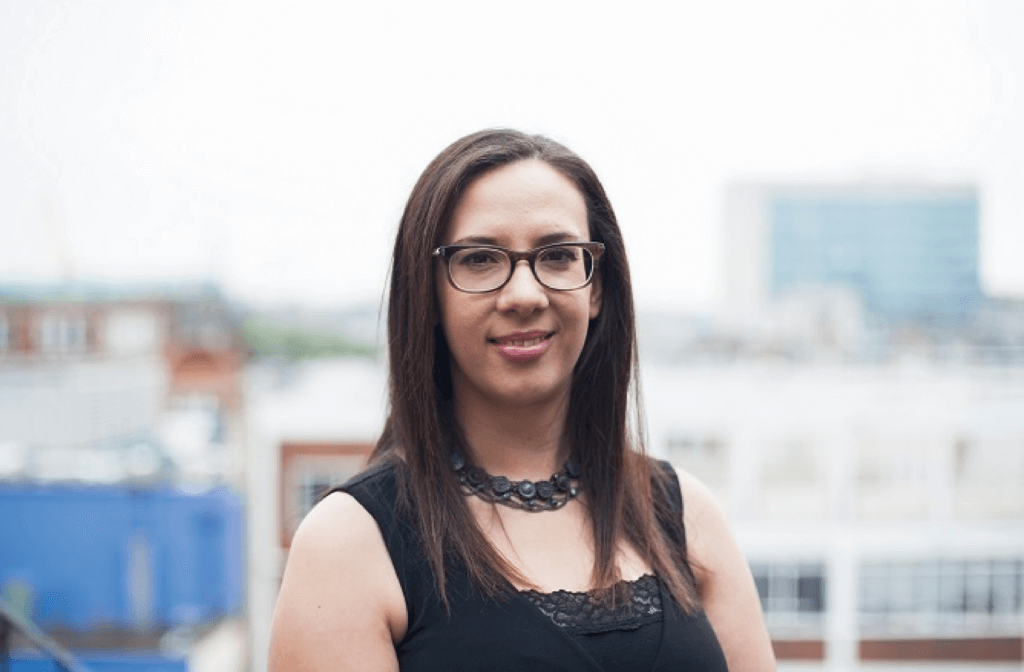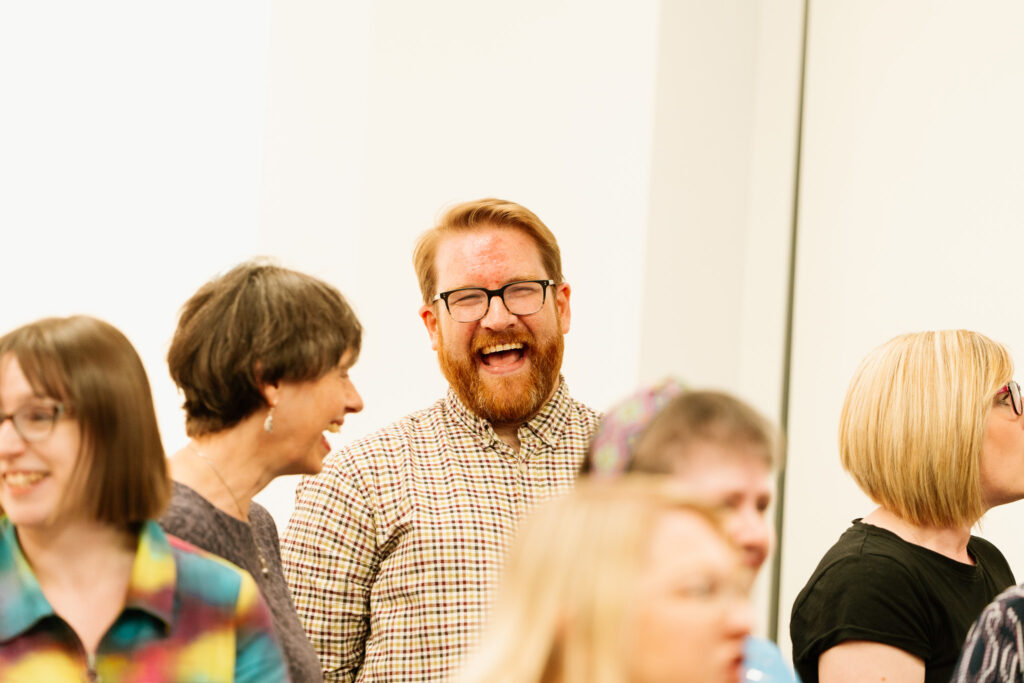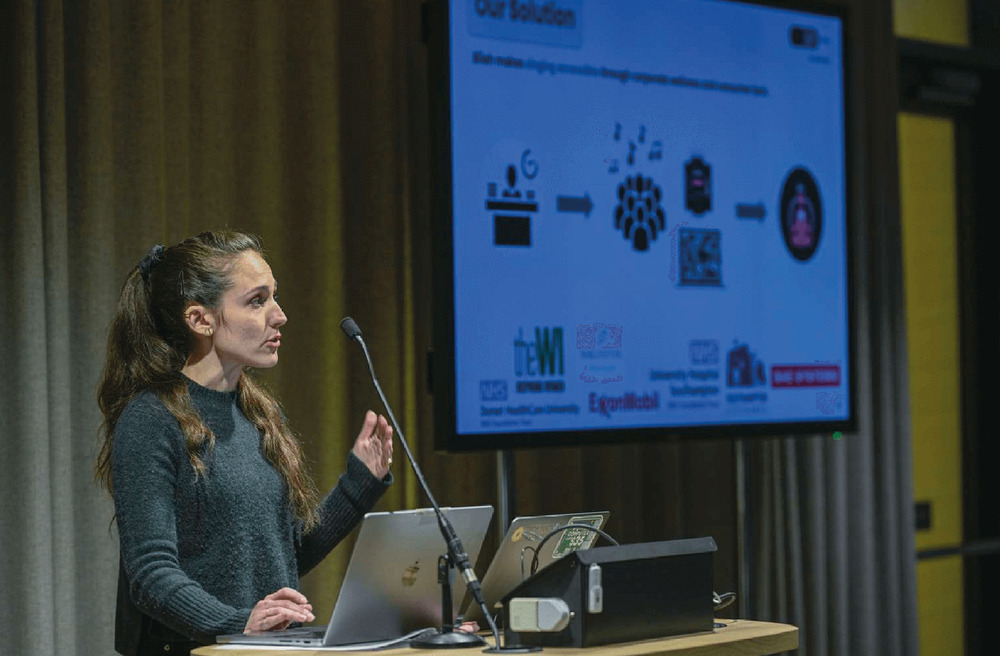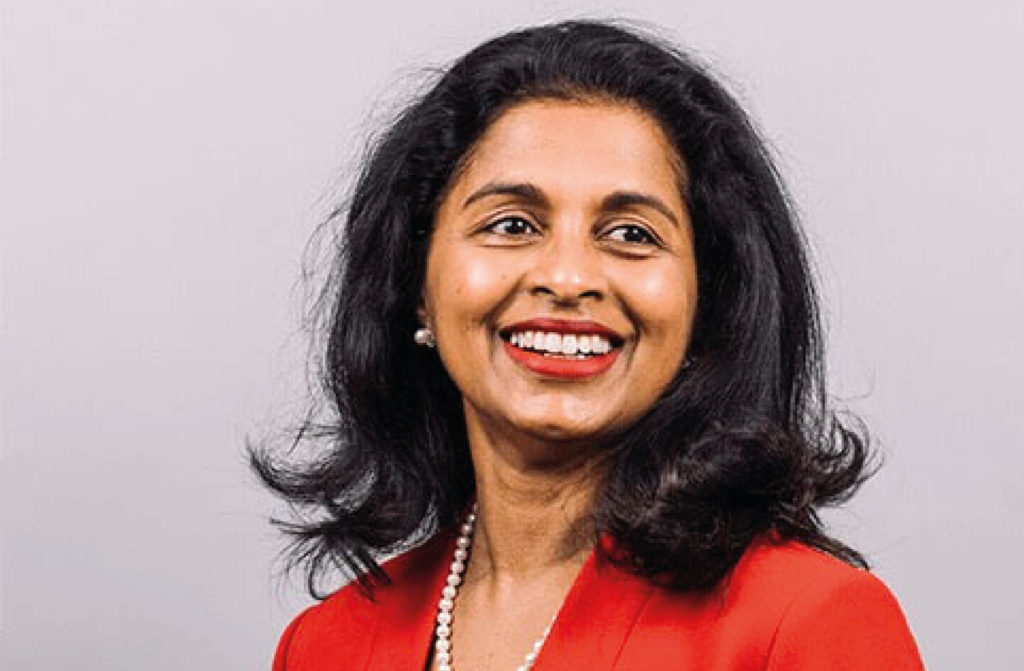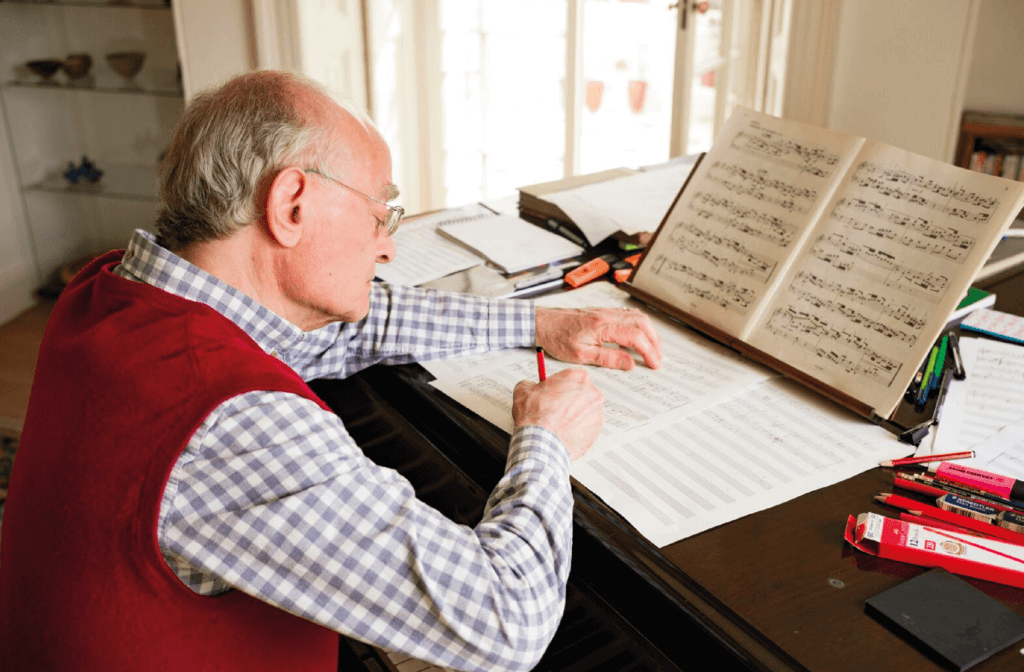An interview with Biiah’s Advisory Board Member (2021-22), and former Head of Business Development at The Incorporated Society of Musicians, Sarah Osborn.
Introduction
Sarah Osborn sat on the Advisory Board for Biiah, where she advised on Business Development and Music Publishing. Find out more about Sarah’s work, her passion for music and what drew her to working with us.
Q: How is singing a part of your life?
Instinctively I would say ‘not very much’ as I’m not a member of a choir but when I think about it, I do sing most days, just not in a formal setting. It’s a short burst here and there when a catchy song comes on the radio or when I’m walking. I also go to scratch choir days for my fill of the greats of the choral repertoire; I love the challenge of sight-singing and learning new repertoire quickly.
Q: Why were you drawn to being on the Advisory Board for Biiah?
I think the mission of Biiah to ‘make music education accessible to everyone’ is of paramount importance. Music is, unfortunately, being eroded from schools for a number of reasons. We are in danger of access to learning to play an instrument or having singing lessons becoming the preserve of those who can afford it. By using gaming, Biiah [Biiah’s app which is currently in Beta testing stages] provides a real opportunity to support the teaching of music in schools. It can also reach people who don’t normally engage with singing, whatever their age or background. To be involved in a project that could bring about tangible change to the way so many people engage in music is very exciting.
Q: Tell us about being a part of the Advisory Board and what it entails?
The Advisory Board brings a range of experience and expertise to Biiah. We all have vastly different backgrounds and areas of the industry that we work in which we use to support Xann [Xann Schwinn, Biiah’s Co-Founder and CEO] in developing the business. We also have an important role to play in advocating for Biiah and spreading the word to ensure as many people as possible discover our app.
As my background is in music publishing, I work specifically with Xann on ensuring the music used in the app is correctly licensed.
Q: What is your favourite aspect of being involved in Biiah?
Being involved in a music and education tech start-up. Not only in terms of seeing and contributing to seeing the business grow, but also developing an understanding of just how much work goes into building an app. The technical prowess that is needed, the importance of good design and a coherent user journey, the choice of music on the app, the marketing, not to mention all the fundraising that goes into getting a start-up off the ground. There are so many different facets that have to come together for Biiah to flourish.
Q: What was the catalyst for you working in music?
There was never any doubt in my mind that I’d work in music. Growing up, music was such a big part of my life both in and out of school. Studying music at Goldsmiths’ [College, part of the University of London] confirmed in my mind that I wanted to make my hobby my career. I started with aspirations to be a performer but soon realised when I got to college that I didn’t want to be on stage and was better suited to working behind the scenes. When I graduated I applied for all sorts of roles – jobs in orchestral management, at the BBC, with record labels – it just so happened that the first role I got was working for Faber Music, a music publisher. I found working with composers inspirational and rewarding and never looked back.
Q: Tell us about being the Head of Business Developemnt at ISM?
The ISM [Incorporated Society of Musicians] is the UK’s oldest professional body for musicians. Set up in 1882 to promote the art of music and to protect the interests of all those working in the music sector, they campaign extensively on issues such as Brexit and the crisis facing music education in schools. We also strive to improve industry practices, particularly in areas such as discrimination and harassment, and also around fair pay for creators.
As Head of Business Development, my role is to support our 11,000 members with member benefits and services that will support them in their careers. I also work to recruit members into the organisation by ensuring that every professional musician is aware of the support we have available to them from legal advice and insurance to health and wellbeing services and professional development.
Q: What advice would you give someone who wants to start a career in the music industry?
More than anything I think it’s important to understand the industry. Whether you’re a performer, teacher, composer or songwriter, DJ or sound engineer; take the time to find out how that part of the industry works. By that I mean not just how to find work, but also what the financial model is, what the contractual issues are, for example around what your employment status is or the rights that you have as a performer or composer/songwriter. It’s easy to be taken advantage of if you don’t know where the potential pitfalls are.
Secondly, be proactive and think entrepreneurially. If you have ideas, make them happen. Think about what skills you have (probably more than you realise. Musicians are multi-skilled, versatile people), who do you know who might be able to help you get your idea off the ground. Be polite and persistent.
Q: If you had to listen to one song for the rest of your life, what would it be and why?
That is a really tough question! There are so many works that I could choose but on my shortlist would definitely be between Belshazzar’s Feast by Walton or Elgar’s The Dream of Gerontius. I think Elgar just pips Walton to the post. There is so much in Gerontius at every level, the words, the music, the orchestration, it’s just beautiful. I could never tire of it, and the range of emotions it conveys over the course of 95 minutes is astounding.
Sarah Osborn was talking to Ione Haynes, former Marketing Coordinator at Biiah.
